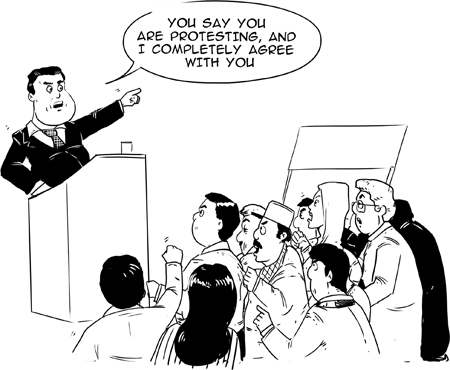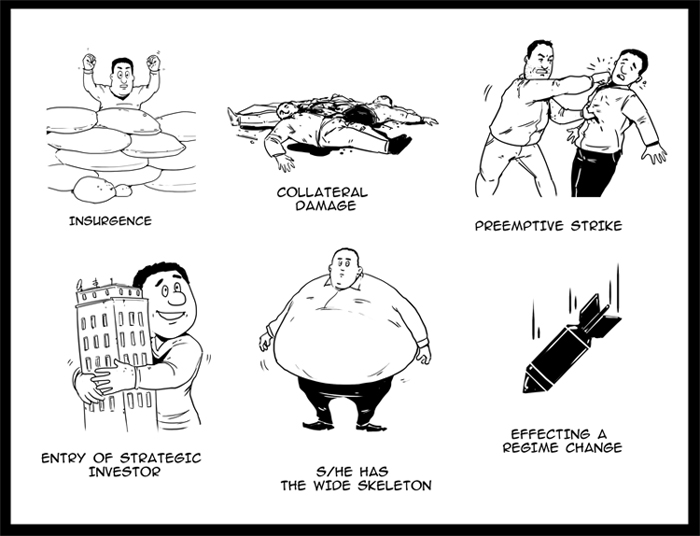Critical thinking
This topic shows you how to think critically, find hidden contexts and read between the lines
Playing with language
Manipulators often use vague words, misleading euphemisms or prejudicial language.
-
Vague, ambiguous or empty words and sentences allow more possible interpretations. By this they can distract attention from important parts of the information. They are widely used in politics, in advertisement or PR.
Examples of vague, ambiguous words
Ambiguous words: “Chicken is prepared for lunch.”
Explanation: That chicken is maybe prepared to have cereals for its lunch.
Ambiguous words: “One morning, I shot an elephant in my pajamas. How he got in my |pajamas, I'll never know).” (Groucho Marx)
Vague, empty words: „People deserve certainty.”electoral campaign of political party.
Explanation: this sentence is saying nothing about how its author is going to provide this certainties, it just says something what people obviously want to hear, without any actual promise.Vague, empty words: “My subordinates monitor the situation very closely and I can declare that it is my duty to take measures, which would assure that situation would be solved fairly for all involved.”
Explanation: In spite of the fact that author of the statement says that it is his/her duty to take some measures, s/he has not said whether s/he will really take these measures. You say you are protesting, and I completely agree with you
You say you are protesting, and I completely agree with you -
Misleading euphemisms are used to hide the essence of information, aiming to show bad things in better light or not to show them at all. It is often used in politics to soften or undervalue the reality.
Examples - few misleading euphemisms and their “translation”
 Insurgence = ResistanceCollateral damage = Civilians killed during military operationsPreemptive strike = Unprovoked attackEntry of strategic investor = PrivatisationS/he has the wide skeleton = obese personEffecting a regime change = Attacking a country to set up government favourable to the attacker
Insurgence = ResistanceCollateral damage = Civilians killed during military operationsPreemptive strike = Unprovoked attackEntry of strategic investor = PrivatisationS/he has the wide skeleton = obese personEffecting a regime change = Attacking a country to set up government favourable to the attacker -
Prejudicial language is used to persuade us of something by strong, biased wording and not by argument itself.
Examples of prejudicial language
“There are some non-militant Muslims who have the values we could have agree with.“
explanation: Phrase “There are some non-militant Muslims” has prejudice included in it. It tries to persuade readers that Muslims are actually militant and in general they confess values with which we do not agree. It is not true, in a matter of fact Muslims suffer more violence of “their own” militants than people in other parts of the world, and our values around the world are quite similar.“Chu-Tii - schoolmate from China - is, as it is usual for them, excellent in maths.”
explanation: Statement contains stereotype about Chinese who are excellent in maths. And actually not all the Chinese are so good at it.“Joseph is excellent secretary, in spite of the fact he is a man.”
explanation: Idea that to be a secretary is “female” work is prejudice. There is no reason why man should not do that work at the same quality level.
Questions to reflect on
- Can you remember when you met with prejudicial language? Is there any community in your country about which it is often used? Do you use it yourself?
